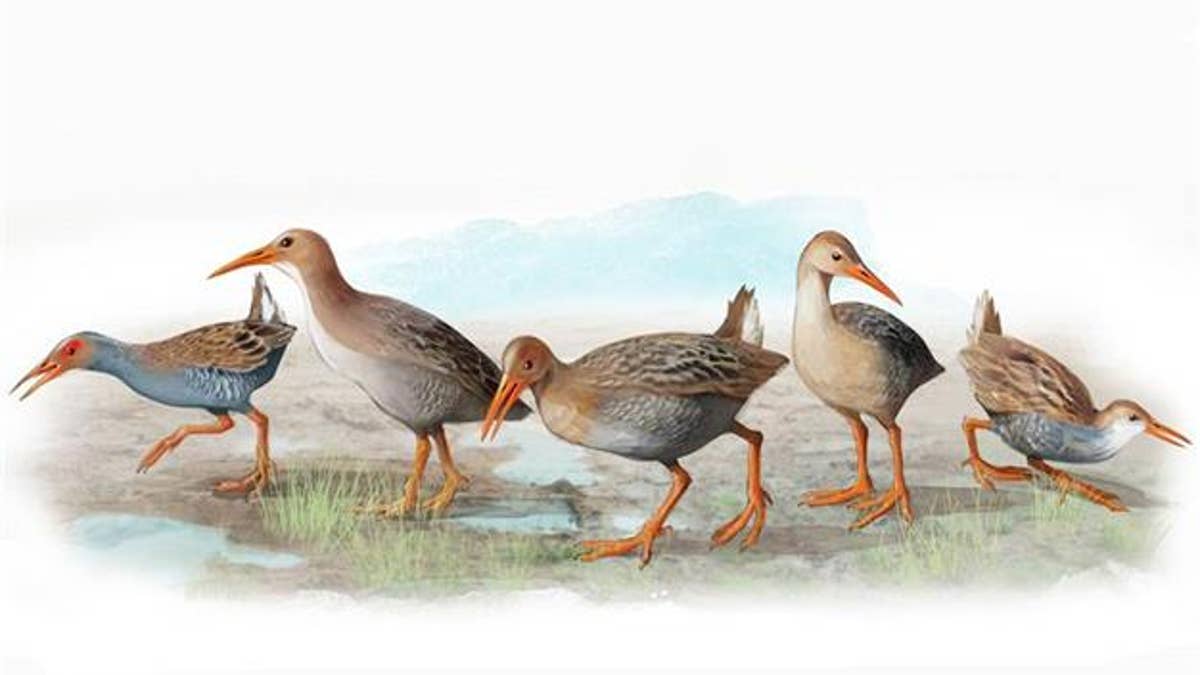
Artist's impression of the five extinct species discovered in Madeira and Azores. From left to right: Rallus carvaoensis, Rallus adolfocaesaris, Rallus montivagorum, Rallus lowei, Rallus "minutus". (José Antonio Peñas (Sinc))
Scientists have discovered five extinct species of bird in Madeira and the Azores.
Research conducted by Spanish, German and Portuguese scientists has unearthed details of the extinct species of rail, which lost their ability to fly after evolving on the islands.
A new study published in ‘Zootaxa’ describes the discovery of two extinct rail species in Madeira and three in the Azores. The birds “very probably disappeared following the arrival of humans and the animals that came with them, like mice, rats and cats,” explained Josep Antoni Alcover, a Consejo Superior de Investigaciones Cientificas (CSIC) researcher working at the Mediterranean Institute for Advanced Studies.
Related: Fossil of duck-billed dinosaur found along Alabama creek
By dating the birds’ bones, or other species associated with them, scientists discovered that the extinct species lived until fairly recently, especially the Azores rails. “At least one of these species survived until the 15th Century, so we are looking at a very recent extinction process,” said Alcover, who co-authored the paper.
Famed British naturalist Charles Darwin visited the Azores in 1826 but his diary only mentions the existence of starlings, wagtails, finches and blackbirds.
In Madeira the rail extinction may have been related to a visit by Vikings, who brought mice to the island, according to Alcover.
Related: Huge titanosaur makes American Museum of Natural History debut
“The bone remains of native bird species which are now appearing show that if Darwin had been able to study the fossils hidden on these islands, or if he had visited 500 years earlier, he would have found a much more singular ornithofauna, with many indigenous bird species, like that which was found on the Galápagos islands," said Alcover.
There are only 13 living rail species of the Rallus genus, according to the study.
The extinct birds found on Madeira and the Azores "were smaller in size than today's continental rails, such as the water rail (Rallus aquaticus), from which they very probably originate," said Alcover.








































